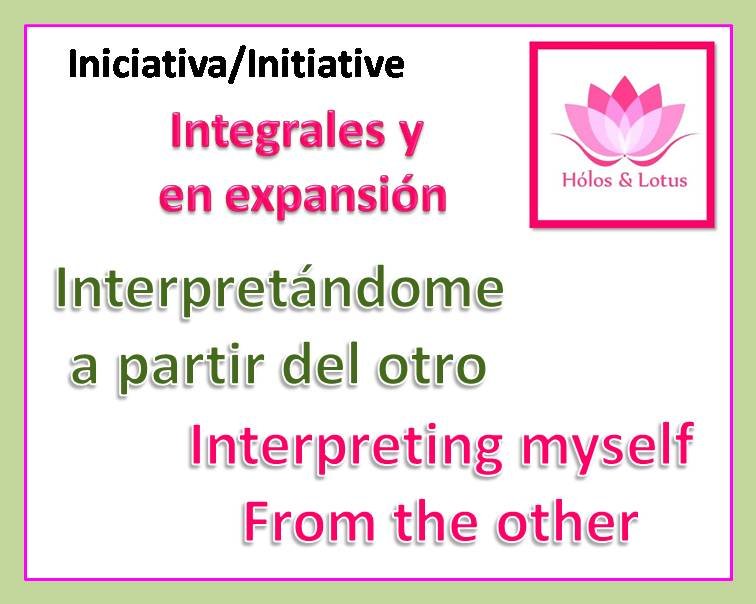
Si algo que nos define como personas es nuestro poder de interpretación. Todos tenemos vivencias y son muchísimas las experiencias que nos son comunes. Por ejemplo, vivimos en un lugar del mundo delimitado geográficamente y eso nos hacer tener características únicas y bien definidas con las que nos identificamos y nos sentimos parte de un grupo llamado Venezuela. De igual manera ocurre con la familia a la que pertenecemos, la escuela donde asistimos, la empresa o institución donde laboramos.
Ahora bien, aunque tengamos experiencias comunes, las vivencias no son iguales y muchísimos menos las emociones y sentimientos que se generan de ellas porque, he aquí lo que nos hace únicos, cada uno la interpreta desde sus creencias y paradigmas que ha construido a lo largo de lo que ha vivido, lo que también se constituye en patrones de comportamientos y de interpretación.
Así tenemos que la interpretación es completamente subjetiva pero como patrón al fin tendemos a seguir ciertas pautas en su construcción. Una de estas pautas, que es el centro del tema de hoy, es que tendemos, con más frecuencia de lo que creemos y aceptamos, a mirar más fuera que dentro de nosotros.
La manifestación de esta afirmación es que muchas veces logramos ver con gran facilidad “los problemas o carencias” que tiene el otro y se nos dificulta ver las nuestras. Entonces es cuando utilizamos expresiones como: es que le falta autoestima, no tiene amor propio, es prepotente, lo domina el ego, le falta voluntad, no tiene motivación y un largo etcétera.
No siempre es tan malo el asunto y en muchas ocasiones somos capaces de ver lo positivo en el otro reconociendo, admirando y respetando sus múltiples valores, talentos, habilidades y es cuando decimos: es muy bueno en esto, que bien ha sabido encaminar sus asuntos, tiene un don especial para… y así vamos observando en el otro lo que es o no es, lo que tiene o no tiene.
Según la teoría del espejo eso que observamos en el otro que nos gusta o no, de alguna manera se encuentra en nosotros, puede que sea o no sea así, lo que si interesante es la oportunidad que nos da esta percepción para comprendernos mejor.
En lo personal, cuando observo algo, reiterativamente, en una persona comienzo a cuestionarme y surgen preguntas como: ¿qué es realmente lo que me molesta?; ¿por qué me molesta?; ¿en algún momento yo he actuado de esa manera?; ¿qué he sentido cuando he actuado de esa manera?; ¿cuánto me afecta esta actitud o conducta?; ¿Vale que me esfuerce en buscar estrategias para transformar en mi esa conducta?, ¿Cómo lo transformo en algo positivo?: ¿qué espero lograr conseguir con ello?; ¿Cómo quiero sentirme al hacer este trabajo interior? En otras palabras, con cada pregunta vamos profundizando en la interpretación de nosotros mismos y esta es la invitación que te hago en esta iniciativa.
¡Concretemos un tema! Piensa en una situación donde te has encontrado observando al otro y te das cuenta que estas juzgando, criticando, cuestionando y a partir de allí comienza tu trabajo de interpretación: observa, mírate y acciona. Comporte lo que desees de esta experiencia interpretativa.
Recuerda
*Las preguntas no son un cuestionario a responder solo es una guía para iniciar tu conversación de “yo con yo”.
*Sigue las normas de la comunidad para publicar.
*Utiliza la etiqueta #interpretación.
*Publica desde hoy hasta el 11 de Mayo
- ¡Feliz Viaje!

In English

If there is something that defines us as people, it is our power of interpretation. We all have experiences and there are many experiences that are common to all of us. For example, we live in a geographically delimited place in the world and that makes us have unique and well-defined characteristics with which we identify ourselves and feel part of a group called Venezuela. The same happens with the family we belong to, the school we attend, the company or institution where we work.
Now, although we have common experiences, the experiences are not the same and much less the emotions and feelings that are generated from them because, here is what makes us unique, each one interprets it from their beliefs and paradigms that have been built along what they have lived, which also constitutes patterns of behavior and interpretation.
Thus we have that the interpretation is completely subjective but as a pattern we tend to follow certain guidelines in its construction. One of these patterns, which is the focus of today's topic, is that we tend, more often than we believe and accept, to look more outside than inside ourselves.
The manifestation of this statement is that we often manage to see with great ease "the problems or shortcomings" that the other person has and it is difficult for us to see our own. That is when we use expressions such as: he lacks self-esteem, he has no self-esteem, he is overbearing, his ego dominates him, he lacks willpower, he lacks motivation and a long etcetera.
The matter is not always so bad and in many occasions we are able to see the positive in the other recognizing, admiring and respecting his multiple values, talents, abilities and it is when we say: he is very good at this, he has been able to manage his affairs well, he has a special gift for... and so we observe in the other what he is or is not, what he has or does not have.
According to the mirror theory, what we observe in the other that we like or dislike, is somehow found in us, it may or may not be so, but what is interesting is the opportunity that this perception gives us to understand ourselves better.
Personally, when I observe something, reiteratively, in a person I begin to question myself and questions arise such as: what really bothers me; why does it bother me; have I ever acted that way; what have I felt when I have acted that way; how much does this attitude or behavior affect me; is it worth my effort to look for strategies to transform this behavior in me; how do I transform it into something positive; what do I hope to achieve with it; how do I want to feel when doing this inner work; how do I want to feel when doing this inner work? In other words, with each question we go deeper into the interpretation of ourselves and this is the invitation that I make to you in this initiative.
Let's focus on one topic! Think of a situation where you have found yourself observing the other and you realize that you are judging, criticizing, questioning and from there begin your work of interpretation: observe, look at yourself and act. Contribute what you want from this interpretative experience.
Remember
*The questions are not a questionnaire to be answered, only a guide to start your "me with me" conversation.
*Follow the community guidelines for posting.
*Use the hashtag #interpretation.
*Post from today until May 11th.
*Happy Traveling!

Translated with www.DeepL.com/Translator (free version)
***Fuente de imágenes: Recursos de la comunidad



MIS REDES SOCIALES





Be Entrepreneur


